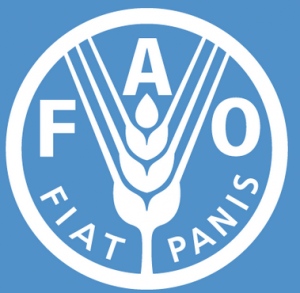FAO supports Ghana government to clear obsolete pesticides
 Government in collaboration with the Food and Agriculture Organisation (FAO) has launched the Technical Cooperation Project in support of the safe disposal of obsolete pesticides in Ghana.
Government in collaboration with the Food and Agriculture Organisation (FAO) has launched the Technical Cooperation Project in support of the safe disposal of obsolete pesticides in Ghana.
The project is to improve on the capacity of relevant government institutions and agro-input dealers to ensure sound management of pesticides and disposal of the current stockpile of obsolete pesticides at the Pokuasi Temporary Storage Facility.
The project is also to create an effective awareness strategy, aimed at preventing misuse and abuse of pesticides in order to reduce risks and improve pesticides management, thereby contributing to sustainable intensification of agriculture in Ghana.
Dr Alhassan Ahmed Yakubu, the Deputy Minister of Food and Agriculture, speaking during the launch said the project would also ensure that the country’s agricultural activities were done in an environmentally sound and sustainable manner.
He said pesticides contributed to increase yields towards National food security and reduction in cost of production.
However, poor management of these chemical pesticides has resulted in uncontrolled release of toxic substances into the environment, leading to public health concerns, he said.
He said in 2009, a nationwide inventory, documented a total of 183.68 metric tons of obsolete pesticides, which were stored in a temporary storage facility.
The Minister said the alarming situation led to a request from the Ministry of Food and Agriculture to FAO and the Environmental Protection Agency (EPA) to support the removal and disposal of the obsolete pesticides.
“Out of the 183.68 metric tons, EPA agreed to evacuate 80 metric tons leaving 103 metric tons, which is still at the temporary storage facility,” he said.
He said it was for this reason that the Ministry wrote for support from FAO to remove the rest.
He expressed the hope that the project would contribute to the national development strategies, in the areas of agricultural production, improved environmental protection, through the reduction of pesticide pollution and pesticide-related degradation of waters and soils.
He said public health risks through exposure to obsolete pesticides, would be minimized and institutional capacity strengthened in the management of pesticides and other hazardous chemicals
“Stakeholders involved in this business will be trained on improved pesticides stock management,” he added.
He anticipated that the successful implementation of the project would result in a sustainable intensification of agriculture through improved pesticides management and increased risk reduction in Ghana.
Dr Yakubu said government was committed to regulating the pesticides sector as mandated by the EPA Act and would ensure the allocation of adequate resources for that mandate.
Dr Berhanu Bedane, the Officer in Charge of FAO in Ghana, said it was estimated that the amount of toxic waste, emanating from obsolete pesticides in Africa alone was around 120,000 tons out of 500,000 tons worldwide.
He said these pesticides seriously threatened the health of both rural and urban populations, especially the poorest of the poor and contributed to land degradation, water pollution and associated risks.
He said adequate control and safe management of pesticides was as critical today as at any time in the past.
He said the project support to the legislative and regulatory mechanism would enable the country to develop a robust and sustainable pesticides registration and management system.
Source: GNA
